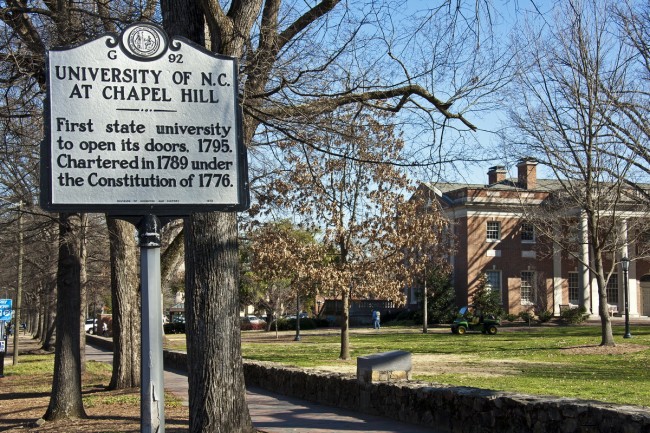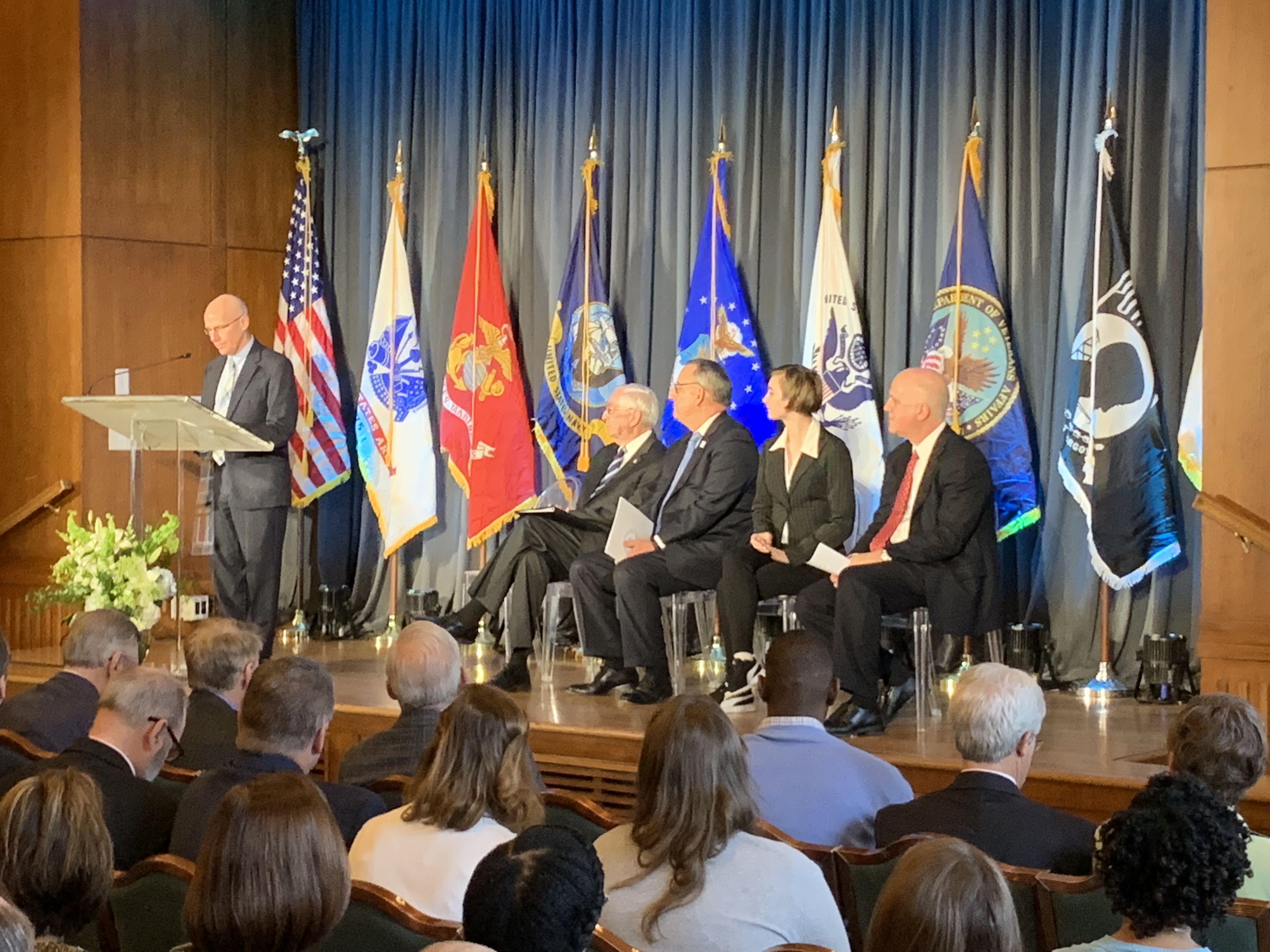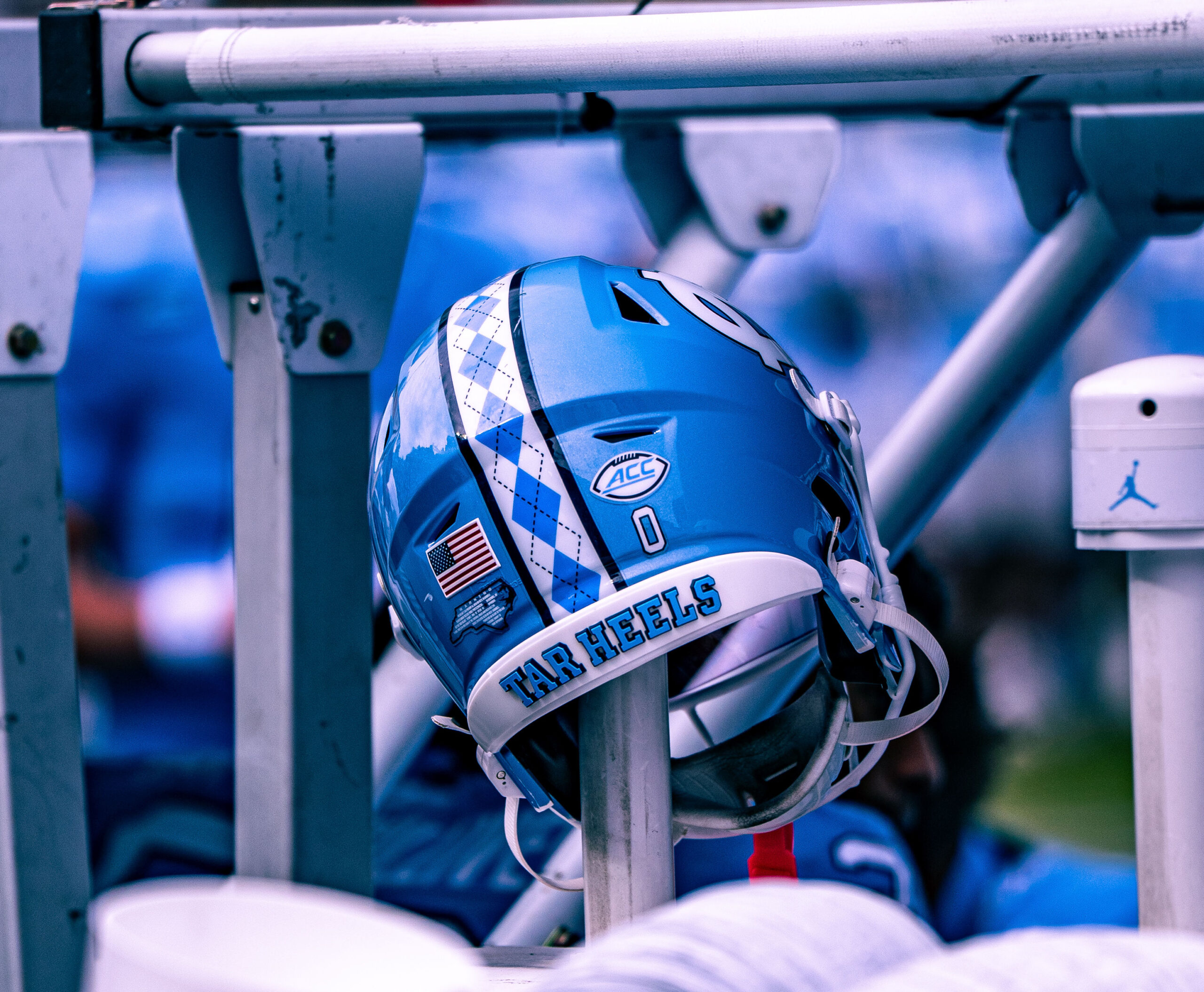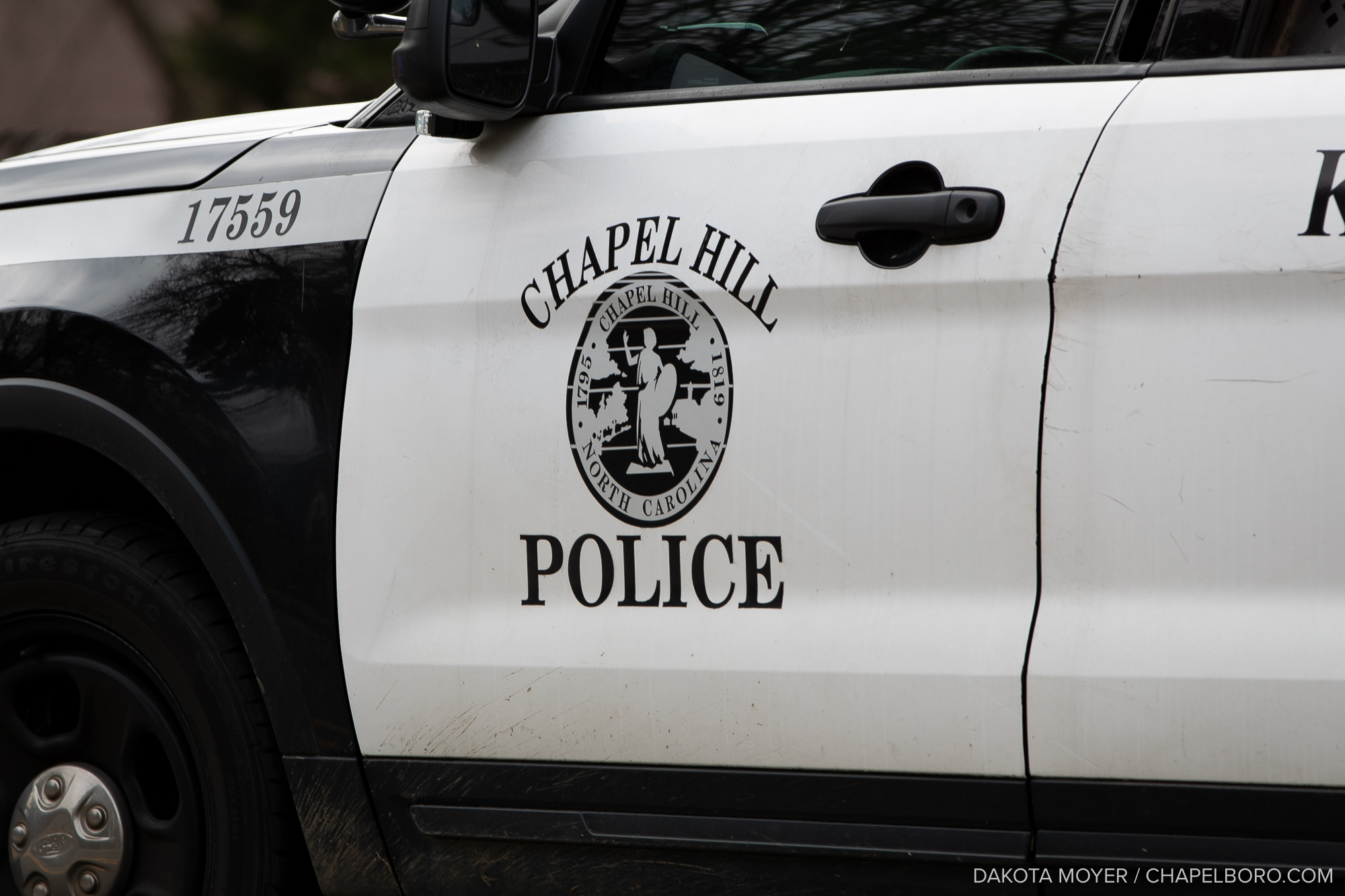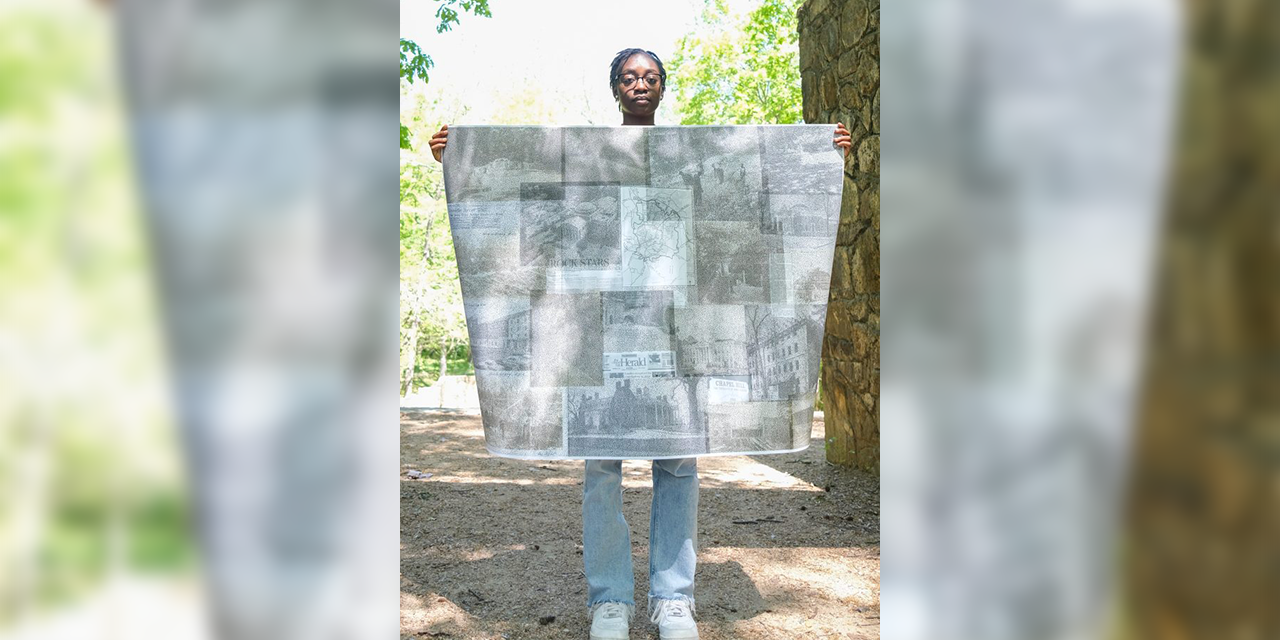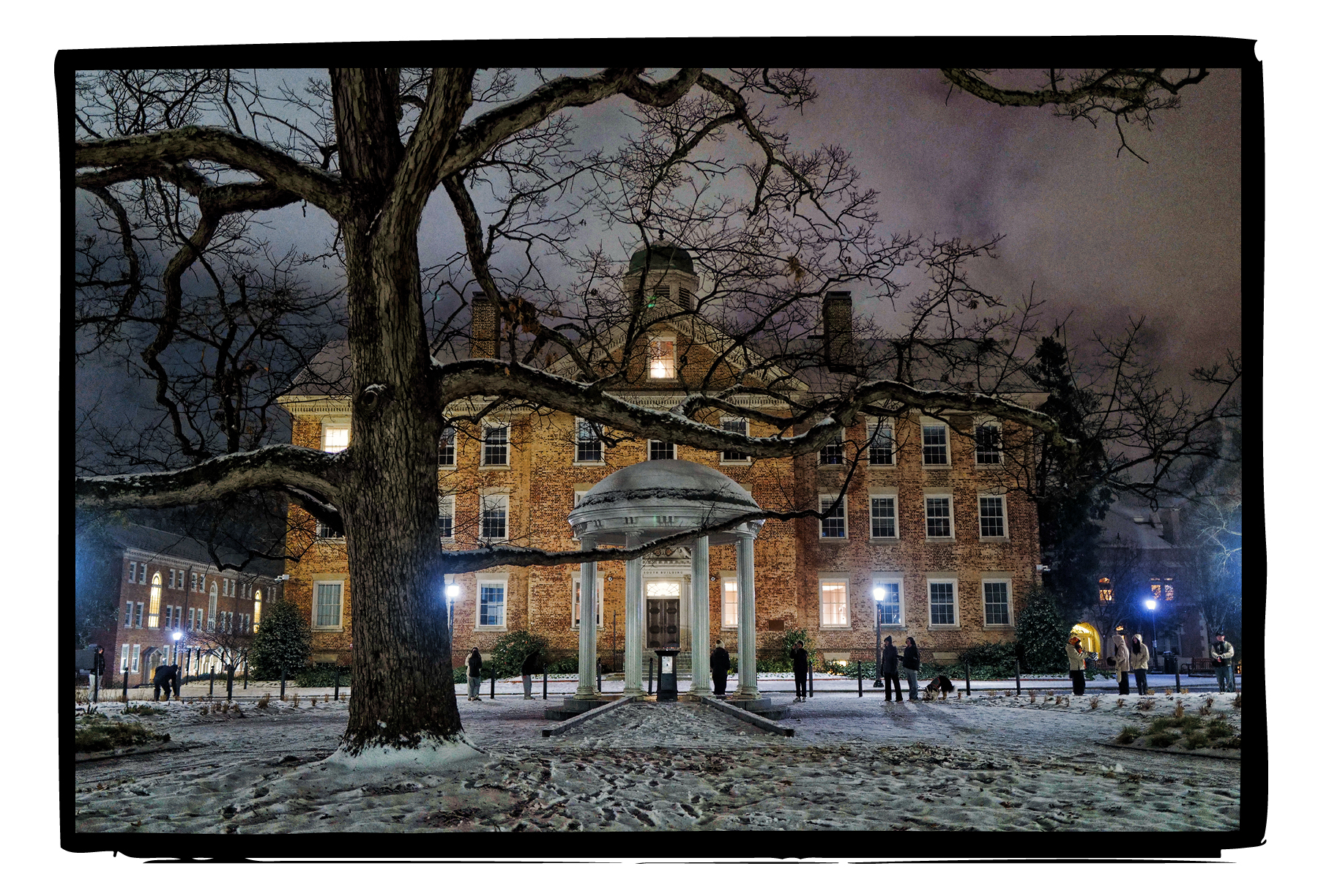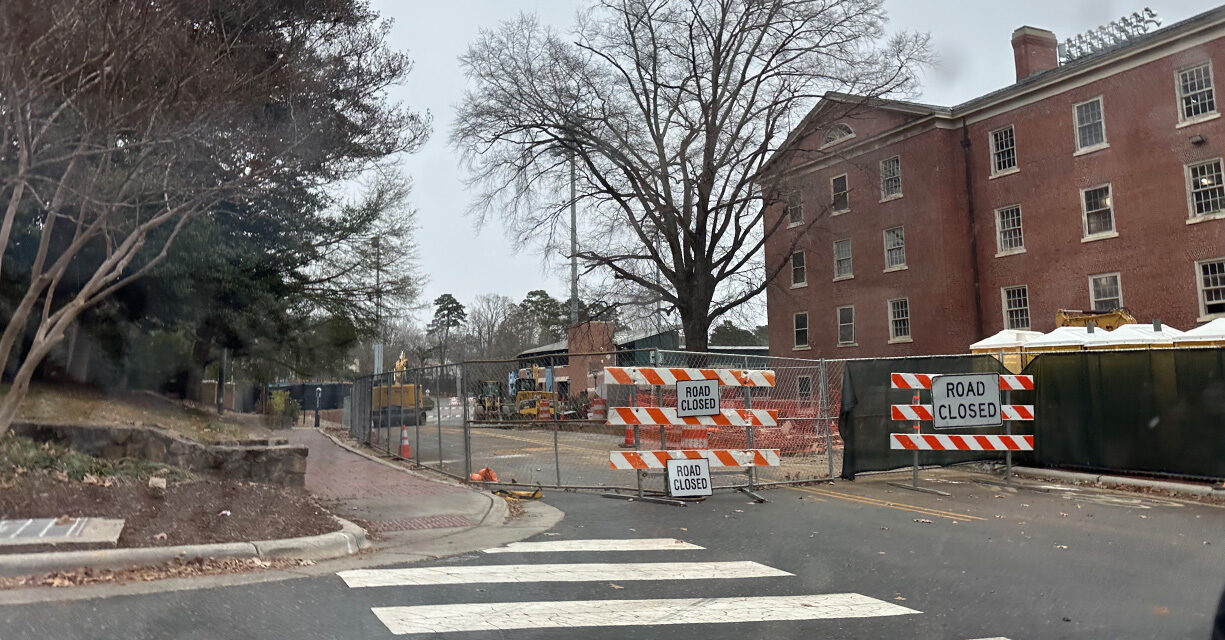A new program for veterans at UNC, called “Boot Print to Heel Print,” follows a series of other steps the university has taken to support military personnel. This latest program seeks to ease the veteran’s transition to college life, something that Amber Mathwig experienced first hand.
“I made mistakes and I made it hard on myself. And it didn’t necessarily have to be that hard.”
Mathwig is a 10-year United States Navy veteran and UNC’s first student veteran assistance coordinator. She said she uses her personal experiences to guide her in her new position.
“There are parts where I thought I could have done better if I hadn’t been so stubborn and reached out for better resources.”
This has become her mission – to bring resources to incoming student veterans and support their transition into college. Mathwig designed UNC’s “Boot Print to Heel Print” program that will help incoming undergraduate and graduate students with prior military experience acclimate to their new school environment.
“There’s programming we do for the university at large to kind of hit on what everybody needs, but there are specific needs for the student veteran population that we’re trying to address.”
Those specific needs, like understanding GI Bill benefits and finding special counseling services, will be addressed during an orientation next week. The two-day program will include workshops in financial literacy, UNC’s IT system and how to access career services. The students will also participate in team-bonding exercises on UNC’s outdoor challenge course.
“We’re looking at introducing almost 35 veterans to each other right away. And saying here is a community you can reach out to.”
Mathwig said establishing that community early on is key to the students’ success.
“There’s a lot to be said for having a group that supports you and is on the same mission as you are.”
The idea of a mission is a common theme that Mathwig uses when helping students transition out of the military lifestyle and into college. Instead of thinking about the “team’s mission,” Mathwig said, students have to start thinking about their own missions and how to hold themselves responsible.
“When you’re in a university, you have a mission, but it’s an individualized mission and you’re really the only person affected if you don’t reach that goal every day.”
Mathwig said she partnered with other campus resources to give students as many opportunities as possible to build personal and academic skills, foster spiritual and social growth and join clubs or form like-minded communities.
“This is my first year here, and I’m trying to design a program. Everyone that I’ve reached out to to help with the program has been terrific,” Mathwig said. “This would not be possible without the wonderful collaborations of all of our campus partners.”
The undergraduate program is funded by a grant from the Carolina Parents Council, while the graduate and professional student program is funded by the university’s Office of the Dean of Students and The Graduate School. All the programs use feedback from transfer student retention rates and surveys, as well as from other students formerly in the military. This personal feedback is what will make the program successful, Mathwig said.
“One of the great things about veterans, and I’m sure it goes into a lot of other populations, but they want to make things easier for the next person.”
Mathwig said her new role in the university is just another way she can pursue her own mission.
“My position means that I can carry on with the goal I set for myself when I first got out of the military. I wanted to continue serving my population.”
More information about Boot Print to Heel Print can be found here.

